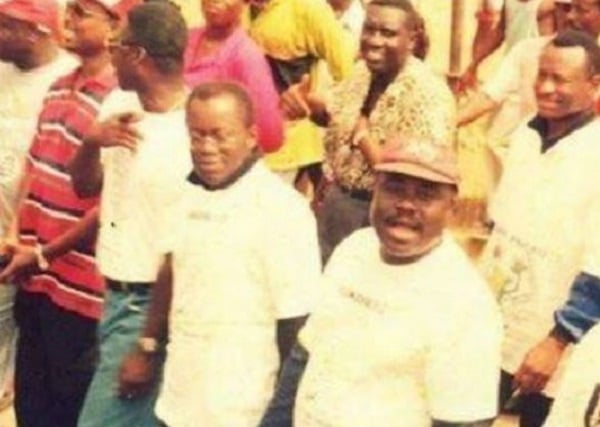President Nana Addo Dankwa Akufo-Addo recently reaffirmed his support for the right to protest in Ghana, drawing on his own political history as a leader during the significant ‘Kume Preko’ demonstration in 1995. Known for rallying over 100,000 participants against the soaring cost of living, this event was pivotal in shaping his political journey. Now, in light of recent demonstrations that have led to the arrest of some protestors, concerns have emerged about possible state interference or executive involvement in curbing dissent. President Akufo-Addo vehemently dismissed these allegations during an interview with France24, emphasizing that he has no qualms about protests and questioning how a political figure like himself could oppose such expressions of civic engagement.
During the interview, President Akufo-Addo emphasized the independence of Ghanaian courts and asserted that they operate independently of political influence. He stressed that accountability for any misconduct during protests resides with the judicial system, rather than the executive. The president stated that any individuals found guilty of misconduct are subject to legal consequences based on their actions, rather than the act of protesting itself. His remarks were intended to illustrate that protests, including those organized against his government, are legitimate avenues for citizens to express discontent, and he does not view them as threats to his administration.
Akufo-Addo’s comments shed light on a broader discourse within Ghana regarding the right to peaceful assembly and expression. The president argued that the ability to protest is an essential component of democracy, enabling citizens to voice their grievances about government actions or policies. He believes that the robust nature of Ghana’s democracy includes room for criticism and dissent, and any suggestion that the government is attempting to repress opposition voices contradicts his own experiences as a protest leader.
Moreover, Akufo-Addo’s strong stance on the independence of judicial proceedings underscores the democratic structures in place in Ghana. By distancing his administration from the actions taken by law enforcement and the judiciary, he attempts to restore confidence amongst citizens who may feel that their right to protest is under threat. He appealed to the public’s understanding that the rules governing public gatherings and protests are designed to ensure order and safety, while still protecting the rights of citizens to express their views.
The president’s legacy as a protest leader adds depth to his current position on civil liberties and rights in Ghana. His belief in the importance of citizens’ voices being heard remains at the forefront of his political ideology, allowing him to connect with a populace that has historically utilized protests as a means of political engagement. By situating himself as an ally of the people, he aims to foster a political environment that encourages dialogue and constructive criticism rather than one defined by suppression and fear of retribution.
In conclusion, President Akufo-Addo’s reflections on the right to protest resonate with a long-standing tradition of civic engagement in Ghana. By advocating for freedom of expression and the independence of the judiciary, he positions his government as a defender of democracy and individual rights. As tensions rise amid political discontent, understanding and maintaining this delicate balance between governance and the rights of citizens will be crucial for the future of Ghanaian democracy. As the president navigates these complex issues, his experiences and legacy as a proponent of peaceful dissent could play a pivotal role in shaping how protests are viewed and handled moving forward.


